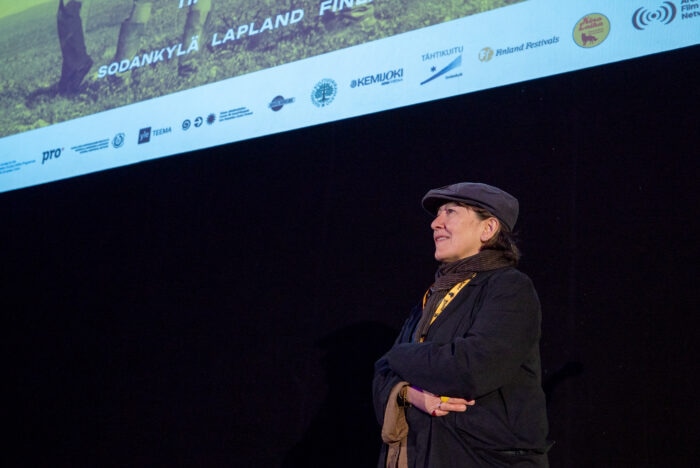The first film that director Athina Rachel Tsangari remembers watching was a nature documentary by Jean Jacques Cousteau. Tsangari believes the film made a lasting impression on her, as she still loves nature documentaries and their calming male narration voices.
She spent her childhood summers with friends at outdoor cinema screenings in her hometown, watching works including those by Pier Paolo Pasolini. Yet in her youth, she never dreamed of working in the film industry.
“As a little girl and a young woman in Greece, it was science fiction to think that you could ever become a filmmaker, it was never in the cards for me”, Tsangari says.
Tsangari studied literature, theatre studies, and philosophy at a Greek university. She says she organized protests and was part of a Marxist left-wing movement from the age of 15.
Finding the atmosphere in Greece and its arts scene too limiting, she applied to study in the United States. While studying in New York and Austin, Texas, she discovered a new passion for filmmaking.
“My thesis was about nomadic people, urban nomadism in New York, in a big city. — I had the camera literally being part of my body, I would literally not separate from it, I just couldn’t live without it.”
Tsangari says she also learned a great deal about producing films in the U.S. With almost no public funding available, producing indie films and organizing film festivals required creativity and frugality.
When she couldn’t extend her residency permit in the U.S., she returned to Greece. She found work on the opening ceremony of the Athens Olympics, where Giorgos Lanthimos had been hired as the visual director. The two connected well and bonded over their backgrounds in experimental theatre. Tsangari went on to produce Lanthimos’s films Kinetta (2005) and Dogtooth (2009).
According to film theorists, Tsangari became part of a new postmodern movement called the “Greek Weird Wave.”
“For critics and historians it’s just a way of doing taxonomy of cinema, but at the same time flattening it. We never saw ourselves as any wave, there’s always a zeitgeist and mutual influence. Yorgos and I both came from theatre and dance, this understanding on physicalizing actions, working through rehearsals. Weird… it’s quite unfortunate, I’m not happy with that.”
Tsangari says she’s happy about the changes she’s seen in the Greek film industry. She notes that more and more producers are women and feels that, through her own production company, she has helped cultivate a new generation of female filmmakers.
Tsangari strives to avoid dogmatism in her directing. Her approach is theatrical, with film scenes developed and rehearsed extensively in a collaborative working group.
“It’s not just collaboration, the cast and crew really become one organism. We become this animal, a new animal.”
